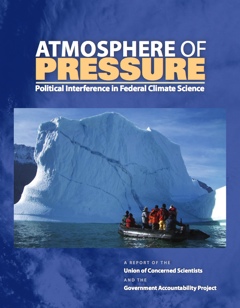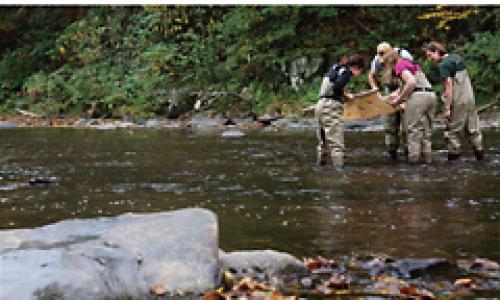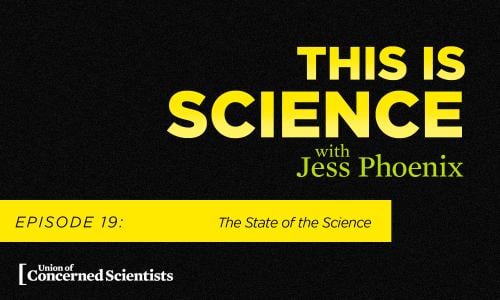Federal climate science research is at the forefront of assessing fundamental causes of global warming and the future dangers it could pose to our nation and the world. It is crucial that the best available science on climate change be disseminated to the public, through government websites, reports, and press releases. In recent years, however, this science has been increasingly tailored to reflect political goals rather than scientific fact.
Out of concern that inappropriate political interference and media favoritism are compromising federal climate science, the Union of Concerned Scientists (UCS) and the Government Accountability Project (GAP) undertook independent investigations of federal climate science. UCS mailed a questionnaire to more than 1,600 climate scientists at seven federal agencies to gauge the extent to which politics was playing a role in scientists' research. Surveys were also sent to scientists at the independent (non-federal) National Center for Atmospheric Research (NCAR) to serve as a comparison with the experience of federal scientists. About 19 percent of all scientists responded (279 from federal agencies and 29 from NCAR).
At the same time, GAP conducted 40 in-depth interviews with federal climate scientists and other officials and analyzed thousands of pages of government documents, obtained through the Freedom of Information Act (FOIA) and inside sources, regarding agency media policies and congressional communications.
These two complementary investigations arrived at similar conclusions regarding the state of federal climate research: while scientists hold a high regard for the quality of federal climate change research, there is broad interference in communicating scientific results.
UCS Senior Scientist Francesca Grifo testified about the report in front of the House Oversight and Government Reform Committee. Find her written testimony in PDF format at the "Download" section, located at the top of this page.
Congress and agency leaders must act to end political interference in science. Federal agencies should adopt communications policies that promote a free and open exchange of information and include the following points:
- Scientific freedoms—Federal scientists have a constitutional right to speak about any subject so long as the scientists make it clear that they do so in their private capacity. Scientists must also have a "right of last review" on agency communications related to their research.
- Scientific openness—Scientists should not be subject to restrictions on media contacts beyond a policy of informing public affairs officials in advance of an interview and summarizing the interaction for them afterward.
- Communication of scientific findings—Federal agencies should support the free exchange of scientific information in all venues.
- Whistleblower protection—Scientists who speak out when they see interference or suppression of science should be protected from retribution. Agencies should affirmatively educate their employees of their rights under these statutes. Furthermore, Congress should extend whistleblower protection to scientists who report interference and should continue to hold oversight hearings and investigations into allegations of manipulation, suppression, and distortion of science.
Political interference is not unique to climate science. Use the links on this page to explore the climate survey, surveys of scientists at other federal agencies, and scores of examples of the abuse of science on issues ranging from childhood lead poisoning to toxic mercury emissions to endangered species.




